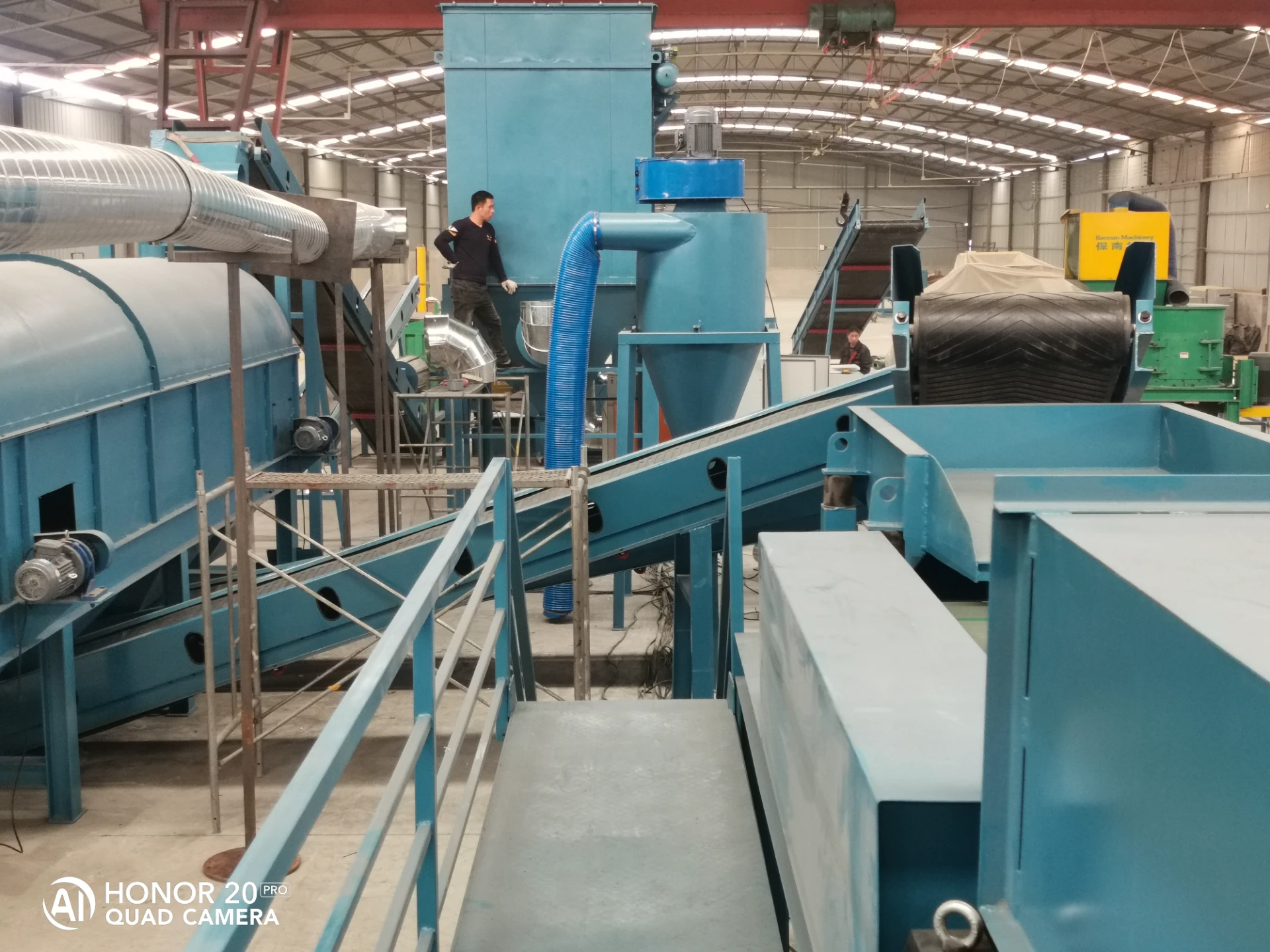

nóv . 18, 2024 00:23 Back to list
Understanding the Price Factors of Cable Granulators
Cable granulators are essential machines used in the recycling industry, specifically designed to separate copper and aluminum from plastic insulation of scrap cables. As the demand for recycled metals rises, so does the importance of these machines in the market. However, one of the most frequently asked questions by businesses and individuals considering investing in such equipment is What influences the price of a cable granulator? In this article, we will explore the various factors that affect the pricing of cable granulators and provide insights into how to make an informed purchase.
1. Machine Specifications
The specifications of a cable granulator play a significant role in determining its price. Machines come in various capacities, with smaller units designed for low-volume processing and larger, industrial-grade machines meant for high-output operations. Features such as the type of blade, motor power, and the degree of automation can also impact the cost. For instance, a cable granulator with advanced technology, including programmable settings and higher efficiency rates, generally incurs a higher price.
2. Production Capacity
The production capacity of a cable granulator can range from a few hundred pounds to several tons per hour. Higher-capacity machines are designed to handle larger volumes of material, which naturally makes them more expensive. When assessing price, businesses should consider their operational needs investing in a lower-capacity machine may be more cost-effective for smaller operations, while larger enterprises might benefit from a high-capacity system that offers better efficiency and output.
3. Brand Reputation
Brand reputation is another factor influencing price. Established manufacturers with a history of reliability, durability, and top-notch customer service often command higher prices for their equipment. Investing in a reputable brand can lead to better long-term savings due to reduced maintenance costs and improved after-sales support. Lesser-known brands may offer lower initial prices, but they might not provide the same level of reliability and support, leading to higher costs down the line.
4. Materials and Construction Quality

The materials used in the construction of a cable granulator significantly impact its price. Machines made from high-quality steel or with enhanced components designed to withstand wear and tear may be more expensive initially, but they tend to have a longer lifespan and require less maintenance over time. It is crucial to evaluate the balance between price and quality, as cheap machines might lead to quicker wear and more frequent replacements.
5. Technology Integration
Modern cable granulators are increasingly equipped with advanced technologies to optimize performance. Features such as dust collection systems, magnetic separators, and vibrating screens add to the initial cost but can improve efficiency, safety, and compliance with environmental regulations. Buyers should investigate which technological features are essential for their operations and how they impact pricing.
6. Shipping and Installation Costs
Beyond the purchase price of a cable granulator, potential buyers should also factor in additional costs such as shipping, installation, and training. Depending on the supplier, these costs can vary significantly. Some manufacturers offer comprehensive packages that include these services, while others may charge separately. It is essential to clarify these details upfront to avoid unexpected expenses.
7. Market Trends and Demand
Lastly, market conditions can influence the price of cable granulators. In times of high demand for recycling equipment, prices may increase. Conversely, during economic downturns, prices might drop. Staying informed about market trends can help buyers make strategic purchasing decisions.
Conclusion
In summary, the price of a cable granulator is influenced by a combination of factors including specifications, production capacity, brand reputation, material quality, technological features, shipping and installation costs, and market trends. Prospective buyers are encouraged to evaluate their specific needs and budget while considering these influencing factors. By doing so, they can make a well-informed investment that maximizes their return and enhances their recycling operations.
Latest news
The Future of Metal Recycling: Revolutionizing Waste Management
NewsMay.14,2025
Optimizing Waste with Recycling Lines
NewsMay.14,2025
Municipal Solid Waste Sorting Line: Revolutionizing Waste Management
NewsMay.14,2025
Metal Shredders: Essential Tools for Efficient Recycling
NewsMay.14,2025
Maximize Your Profits with a Copper Wire Granulator
NewsMay.14,2025
Home Metal Shredder: A Smart Choice for Your Home Recycling Needs
NewsMay.14,2025